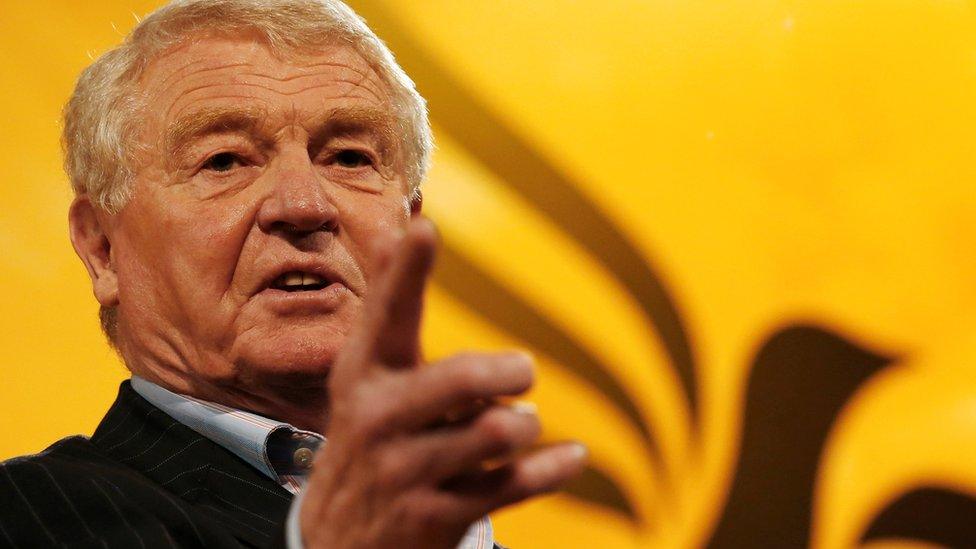'The longer he spoke the more harrowing it got'
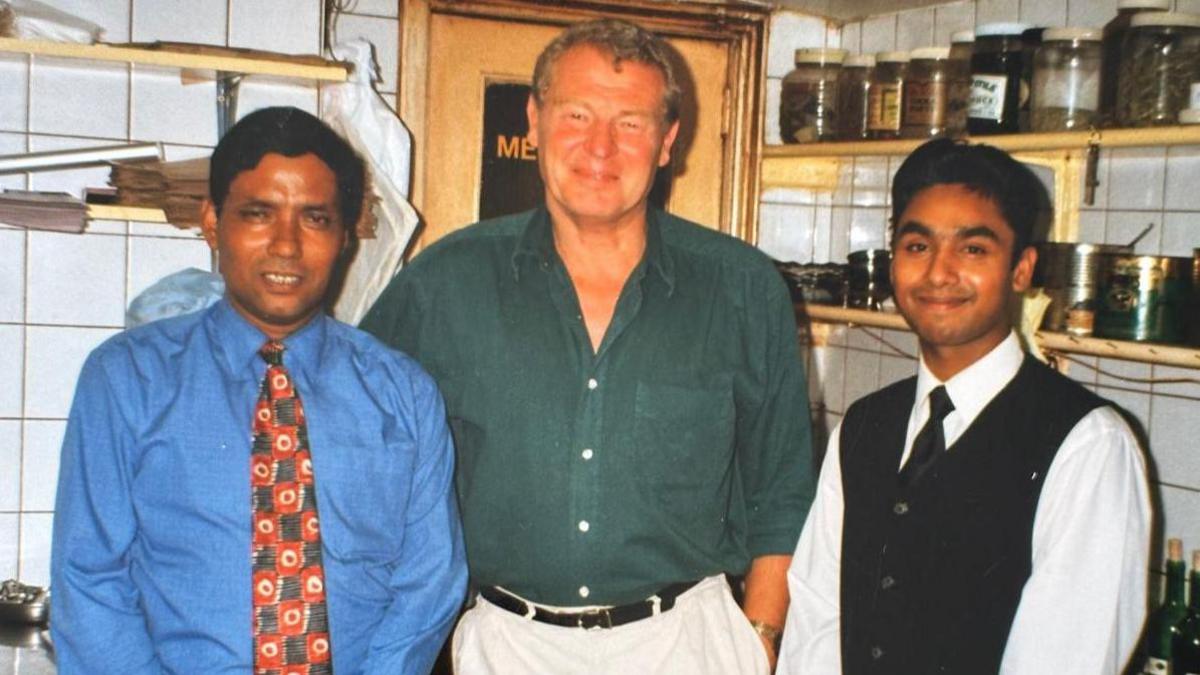
Luthfur Rahman (right) made friends with the late Lord Ashdown who visited his restaurant, the Viceroy, on many occasions
- Published
An award-winning restaurateur has spoken movingly of the support he received from the late Lord Paddy Ashdown during years of racist attacks in his early career.
Luthfur Rahman, 51, started in the restaurant business in 1994 in Yeovil where the Liberal Democrat peer was MP.
Despite as many as 30 attacks on his first venue, one involving a petrol bomb, he said Lord Ashdown's involvement, along with his own self-belief, had enabled him to persevere.
"I knew it was an incredible story," said Bristol Film Festival director Owen Franklin who has written a screenplay about the two men and their shared determination to ease racial tensions in Yeovil in the 1990s.
'Self-belief kept me going'
"There were a lot of attacks and most of them were aimed at seriously injuring or killing me," Mr Rahman told BBC Radio Bristol.
"There were incidents involving knives, baseball bats, even a petrol bomb," he added.
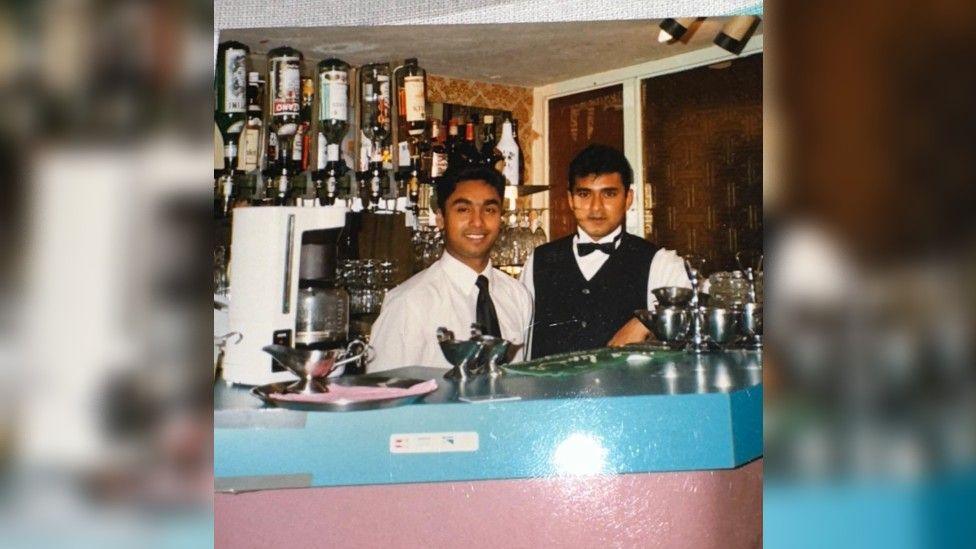
"Working in a restaurant back then for British Bangladeshi youngsters, the second or third generation, was an adventure," said Mr Rahman (left)
"Then in 1999 I ended up in hospital for over three months where I had six inches of my intestine cut out due to all the stress and physical fights that affected my body.
"That was one of the worst moments of my life, where I thought that was it, but the faith, the passion and the self-belief kept me going," he added.
"When I opened a restaurant in Yeovil I met a lot of navy people from Yeovilton, it was interesting," he said.
He forged a friendship with Lord Ashdown, who was himself a former Royal Marine officer, and MP for Yeovil from 1983 to 2001.
"He became very close with me and together we did things to combat ignorant thinking. It took a few years but finally I got people to understand.
"Through the hospitality industry you do it with your love, your care and your passion about food," he added.
Security protection
Lord Ashdown's widow, Jane, said: "There was an immense amount of racial hatred in Yeovil at the time.
"When Paddy heard that Luthfur had been beaten up and all his windows smashed in, he went on a night patrol and was himself threatened with a knife to his throat."
Mrs Ashdown said her husband had then organised specialist security protection for Mr Rahman, his family and colleagues.
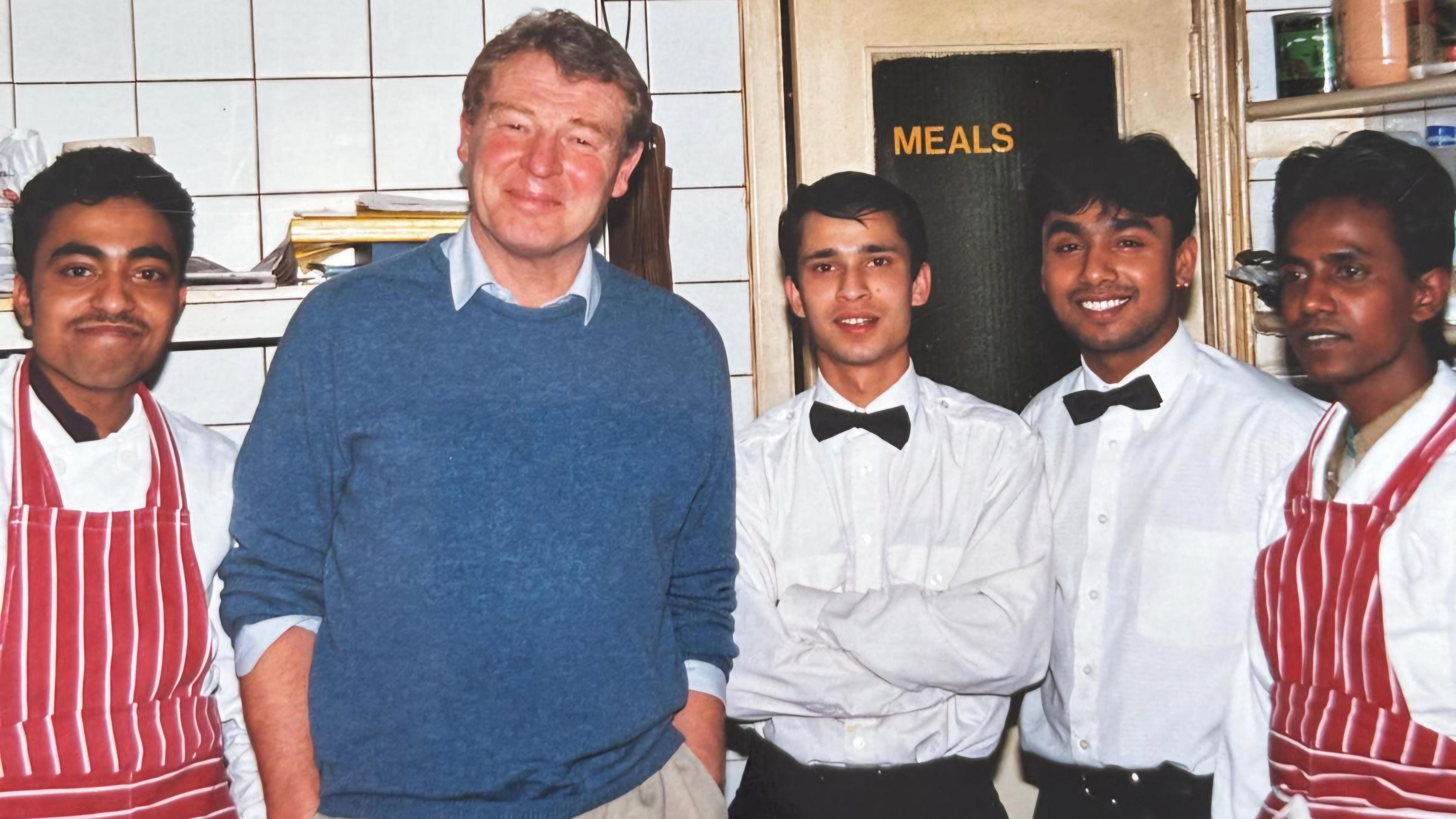
Lord Ashdown organised private security for Mr Rahman (second right) after the attacks on his restaurant
At the beginning of his career Mr Rahman moved from Bethnal Green in London to Yeovil, where he established his first restaurant, Viceroy.
His family's Bangladeshi origins were reflected in his menus and culture of hard work.
"Working in a restaurant back then for British Bangladeshi youngsters, the second or third generation, was an adventure."
Mr Rahman's story is now being made into a screenplay after a chance conversation with the founder and director of the Bristol Film Festival, Owen Franklin.
"I knew it was an incredible story, one that isn't known," Mr Franklin said.
"It was thrilling, shocking and really ripe for a drama because it was his own lived experiences.
"The longer he spoke, the more unbelievable it was and the more shocking and harrowing it got," he said.
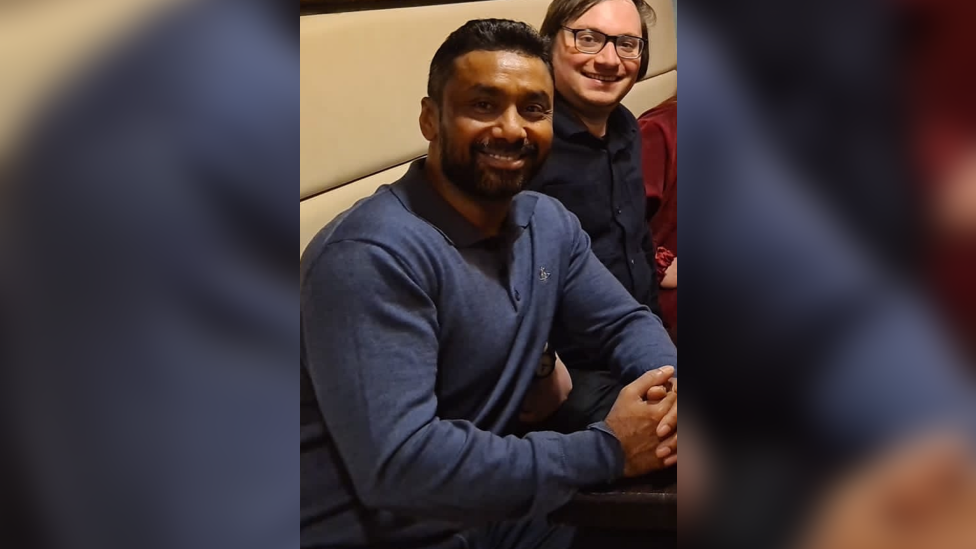
Owen Franklin (right) decided to write a screenplay after a chance conversation with Mr Rahman about his early career in Yeovil in the 1990s
Mr Franklin said he wanted the docu-drama to explore the friendship of the two men and what brought them together, despite their different backgrounds.
The crux of the script is the trial in 1996 that Lord Ashdown became involved in of one of the perpetrators.
'Calling me all sorts'
Lord Ashdown was in office during the years that followed the death of black teenager Stephen Lawrence in London in 1993 and when the Race Relations Act 2000 was implemented.
"He did a lot to help change the ruling of the legislation, and to help me," said Mr Rahman.
"Before 2000, I would have 30 or 40 people standing in front of my restaurant, calling me all sorts. I had to call the police but the police could do nothing.
"After 2000 it became a punishable offence.
"Paddy became involved with my case and you will see in the film what he's done for other people," he added.
Mr Rahman said he believed that the pleasure of eating and enjoying good food was often the secret to improved relations.
"Once those guys (who attacked me) were racist to the core, perhaps even went to prison, but later they became my friends - I converted them.
"It took time but I did it with patience, talking to them and feeding them my food.
"It goes through your mouth but it touches your heart," he explained.
'Attacks made me stronger'
Mr Rahman's business then began to flourish and by 2006 he had six restaurants and two takeaway outlets across Somerset and Devon.
"I have a lot of tolerance and resilience," he said. "Those hard times with the attacks made me stronger."
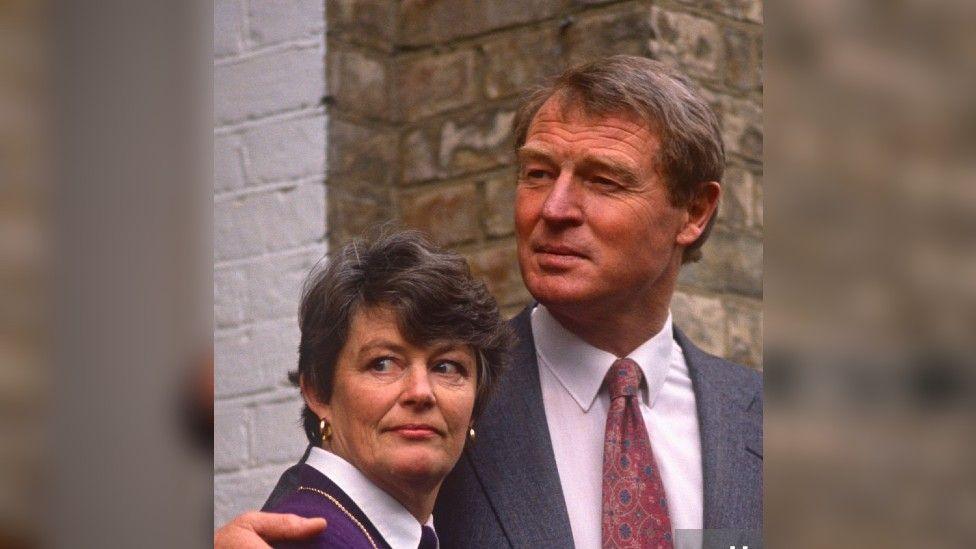
Lord Ashdown's wife, Jane, said: "Luthfur was a very brave man and he was very thankful to Paddy for his help"
Mr Rahman has now scaled back his business but continues to manage two restaurants in Bath and Bristol, both called the Mint Room.
When Lord Ashdown died in 2018, aged 77, Mr Rahman hosted a meal for 150 people in his memory.
Mrs Ashdown said: "Luthfur was a very brave man and he was very thankful to Paddy for his help and wanted to show his appreciation. It was a fantastic meal."
Lord Ashdown himself described Mr Rahman in his 2010 autobiography, A Fortunate Life, as "dynamic and courageous".
In 2020 the Mint Room was voted Britain's number one best restaurant for a curry by a national newspaper.
The script for the film has been written and it is hoped production will begin in 2025.
Follow BBC Somerset on Facebook, external and, X, external. Send your story ideas to us on email, external or via WhatsApp on 0800 313 4630.
Related topics
- Published30 March 2024
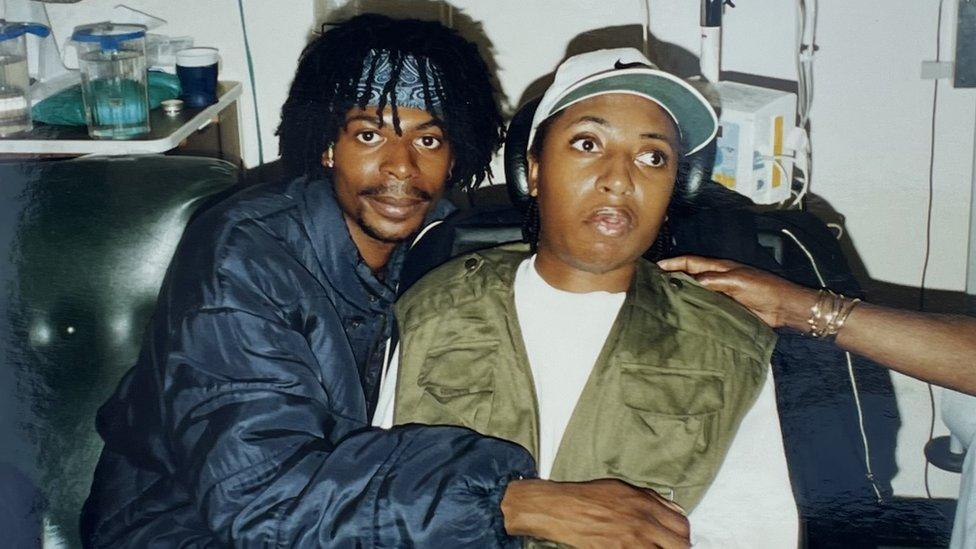
- Published22 April 2024
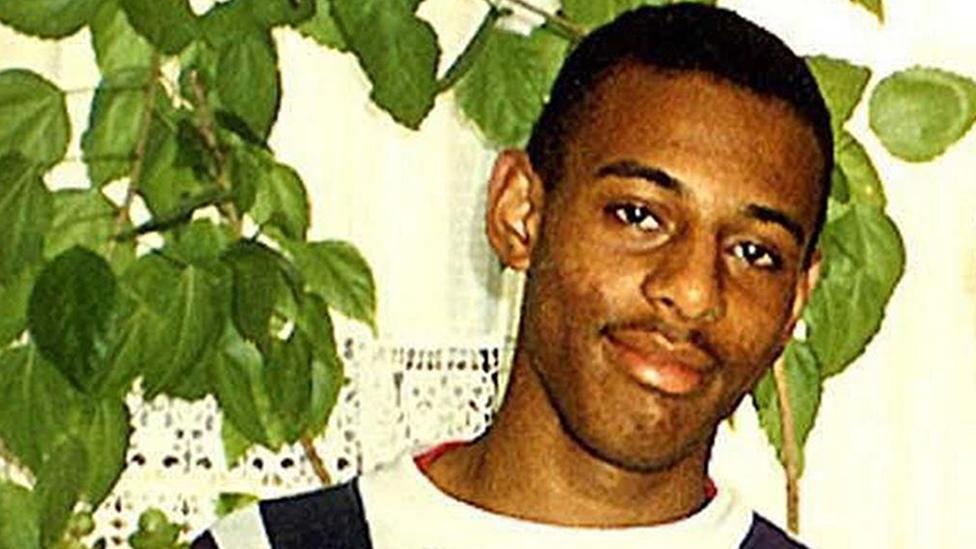
- Published23 December 2018
